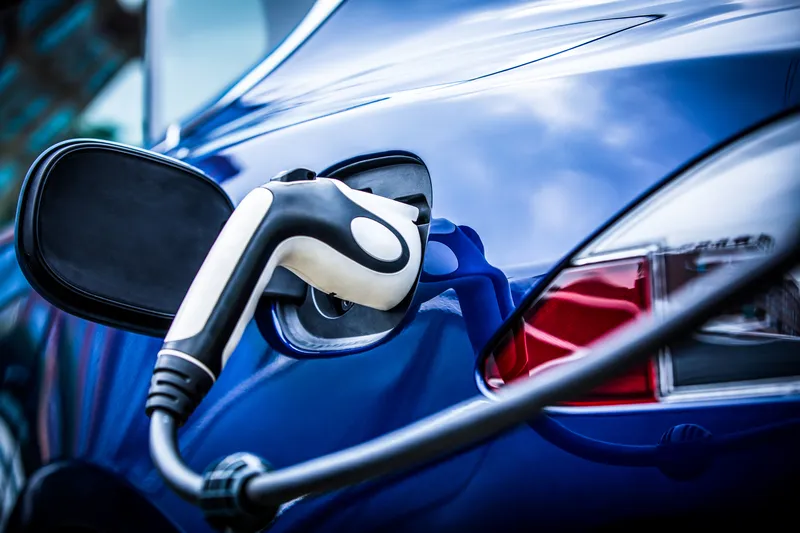A wave of charge-points to support the fast-growing popularity of plug-in vehicles will be installed across the UK after the government set out US$49 million of infrastructure support up to 2020. Homes, hospitals, train stations and A-roads will be some of the locations for further charge-points to maintain Britain’s position as a global leader in this cutting-edge technology.
The support compliments the fast-growing popularity of ultra low emission vehicles (ULEVs) with grant claims rising four-fold in 20
February 27, 2015
Read time: 3 mins
A wave of charge-points to support the fast-growing popularity of plug-in vehicles will be installed across the UK after the government set out US$49 million of infrastructure support up to 2020.
Homes, hospitals, train stations and A-roads will be some of the locations for further charge-points to maintain Britain’s position as a global leader in this cutting-edge technology.
The support compliments the fast-growing popularity of ultra low emission vehicles (ULEVs) with grant claims rising four-fold in 2014 compared to the previous year as take-up of plug-in car grants continues to rise.
In addition, another US$16 million of funding has been announced to boost the UK’s position as a world leader in low emission vehicle technology innovation. The funding will be provided to 50 organisations, ranging from small businesses to major universities, working together on 15 research and development projects, which include: the creation of a novel recycled carbon fibre material that will bring lightweight, low cost vehicle chassis structures to the mass market; development of a zero emission electric bus with hydrogen fuel cell range extender at a fraction of the cost of the current generation of hydrogen buses; a prototype zero-emission power and cooling system adapted from a cutting-edge liquid nitrogen powered engine that will dramatically reduce the CO2 emissions from refrigerated trucks and air-conditioned buses.
Announcing the funding, Transport Minister Baroness Kramer said: “The funding announced today marks another milestone in the government’s support for ultra low emission vehicles as their popularity takes off.
“The public will find it even easier to charge their cars when they are out and about thanks to our US$12 million commitment to support new charge-points across key locations in our towns and cities. And we have today announced another US$23 million to continue to back the rollout of convenient home charge-points across the country.
“Our support to the ULEV industry will help ensure the innovation that is a hallmark of the British automotive industry will continue to drive development in this vital growth sector.”
The niche vehicle sector, which makes everything from premium sports cars to double decker buses, is a key strength for UK industry and another US$770,000 funding will be provided this year to support the development of carbon-saving cutting edge technologies.
The government and industry are also working closely on the Go Ultra Low campaign to increase consumer and fleet uptake. Seven major vehicle manufacturers and the government are backing Go Ultra Low to highlight the increasing variety and benefits of ULEVs.
Homes, hospitals, train stations and A-roads will be some of the locations for further charge-points to maintain Britain’s position as a global leader in this cutting-edge technology.
The support compliments the fast-growing popularity of ultra low emission vehicles (ULEVs) with grant claims rising four-fold in 2014 compared to the previous year as take-up of plug-in car grants continues to rise.
In addition, another US$16 million of funding has been announced to boost the UK’s position as a world leader in low emission vehicle technology innovation. The funding will be provided to 50 organisations, ranging from small businesses to major universities, working together on 15 research and development projects, which include: the creation of a novel recycled carbon fibre material that will bring lightweight, low cost vehicle chassis structures to the mass market; development of a zero emission electric bus with hydrogen fuel cell range extender at a fraction of the cost of the current generation of hydrogen buses; a prototype zero-emission power and cooling system adapted from a cutting-edge liquid nitrogen powered engine that will dramatically reduce the CO2 emissions from refrigerated trucks and air-conditioned buses.
Announcing the funding, Transport Minister Baroness Kramer said: “The funding announced today marks another milestone in the government’s support for ultra low emission vehicles as their popularity takes off.
“The public will find it even easier to charge their cars when they are out and about thanks to our US$12 million commitment to support new charge-points across key locations in our towns and cities. And we have today announced another US$23 million to continue to back the rollout of convenient home charge-points across the country.
“Our support to the ULEV industry will help ensure the innovation that is a hallmark of the British automotive industry will continue to drive development in this vital growth sector.”
The niche vehicle sector, which makes everything from premium sports cars to double decker buses, is a key strength for UK industry and another US$770,000 funding will be provided this year to support the development of carbon-saving cutting edge technologies.
The government and industry are also working closely on the Go Ultra Low campaign to increase consumer and fleet uptake. Seven major vehicle manufacturers and the government are backing Go Ultra Low to highlight the increasing variety and benefits of ULEVs.









